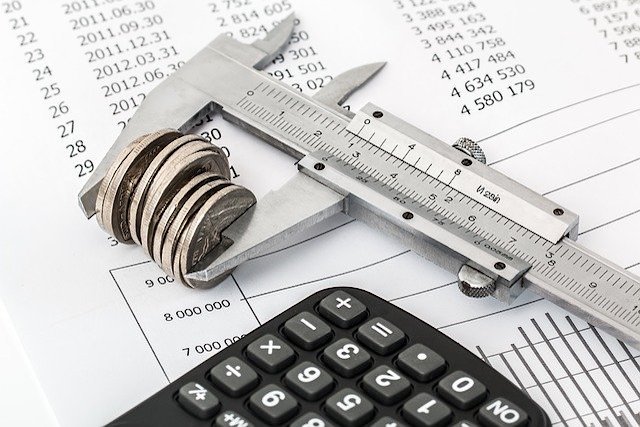If you have debts that you are struggling to pay, deciding on the best course of action can be incredibly stressful and difficult. Nobody’s circumstances are the same, so it is important that you find a solution that is right for you.
An Individual Voluntary Arrangement (or IVA as it is more commonly known) is one such option. It is a formal and legally-binding agreement between you and your creditors that you will pay back your debts over a certain period, so it is essential that you comply with the guidelines at all times.
The question is, how does an IVA work, and, more importantly, is it relevant for your current situation? While there are many positives to this course of action, it can be an expensive procedure and there are certain risks involved. As such, it is essential that you seek independent advice at the earliest possible opportunity so you have the best possible chance of improving your circumstances.
What is an IVA?
Before looking at the process of an IVA, it is important to first of all discuss what it actually entails and whether it is a possible solution for you. Put simply, it is an arrangement that you make with your creditors to pay off unsecured debts such as loans, overdrafts and credit cards. Other arrears include government debts like benefit overpayments and tax debts, however it does not cover items such as mortgages, hire purchase arrangements or car loans.
An IVA is a type of insolvency, just like bankruptcy, and is available in England, Wales and Northern Ireland. If you are based in Scotland, you will not be able to apply for an IVA – though you may be eligible for a Protected Trust Deed which is something similar.
Do I Qualify for an IVA?
Acceptance for an IVA is not guaranteed and there are certain criteria that you must meet. For example, you must have at least three different creditors and owe a large sum of money – typically over £15,000.
While these criteria are not legal requirements, they are rules of thumb that are followed industry-wide to determine the likelihood of your creditors accepting an IVA or not. Some other stipulations include:
- The amount of money you will be returning to your creditors over the lifetime of the agreement must reach a minimum of around 15% of the total value of your debt to them
- The return to your creditors using an IVA must be more beneficial to them than the return they would get via bankruptcy. If it is not, then they may push you to the other option instead
If you find out that an IVA is not suitable for you, there will be alternative solutions for you to explore. This is why it is essential to seek advice from an independent specialist who can gain a thorough understanding of your circumstances and work with you to find the best course of action for you to take.
How Does an IVA Work?
Once you have decided that an IVA is appropriate for your situation, you will need to enlist the services of a licensed insolvency practitioner to set up and manage the payment plan. The first thing they will do is draft what is known as a Statement of Affairs, which is a consolidation of your current financial circumstances (such as assets or liabilities), as well as a breakdown of any income and expenditure. You may also be required to provide evidence like payslips or bank statements.
When everything has been collected together, your insolvency practitioner (also known as a Nominee) may apply for an Interim Order that prevents your creditors from taking action against you until your IVA has been considered. Your proposal will then be distributed to your creditors, as well as the local County Court and the Insolvency Service.

The proposal document will contain a suggested date upon which your application will be considered, known as the Meeting of Creditors. This will typically be at least 14 days after the proposal was issued. Modifications to your proposal can either be made at the meeting itself, or more typically in the days and weeks leading up to the event. Should your creditors require more time to consider your proposal, they can request that the meeting is pushed back.
For your proposal to be successful, you must receive the backing of 75% (by value of debt) of your creditors. If this happens, then all of your unsecured creditors – whether they voted against or didn’t even vote at all – would be legally obliged to abide by the terms of the IVA. Once everything has been approved, all relevant parties are updated about the situation and a Supervisor is appointed to monitor your payments and ensure you are keeping up with your side of the bargain. Typically this will be the same insolvency practitioner that acted as your Nominee.
Provided you continue to make your payments for the agreed length of time (typically this will be around five years), you will be completely discharged of your legal liabilities once the IVA comes to an end.
How are Payments Set Up?
You will work out a payment plan with your insolvency practitioner. This could consist of monthly payments, a lump sum, or a combination of both.
It is essential that you base your payment schedule on something that you can reasonably afford. If you are not able to continue keeping up with your obligations, and your creditors do not feel that your reasons are valid, they will push for you to be declared bankrupt. You may also find yourself liable for any fees your creditors have paid to your insolvency practitioner and your creditors will also be liable to pursue you for the rest of your debts.
All of the repayments you make will be sent to your insolvency practitioner, who will then distribute the funds to your creditors and keep some behind to cover their fees. Provided you keep on top of your obligations, you will not have to make any more payments once the IVA comes to an end – whether you have cleared the entirety of your debt or not.
IVA Pros and Cons
There are many different avenues for people who are struggling financially to explore, so why would they consider an IVA? Here are a few reasons:
- An IVA is a legally-binding agreement, meaning your creditors cannot take further action against you as long as you are keeping up with your payments
- Since an IVA has an agreed timeframe, it is extremely useful if you have a budget you believe you can stick to
- All of your debts are discharged when you fully complete the IVA, even if you have not paid everything you owe
- Your IVA will be removed from the Individual Insolvency Register only three months after it has been completed
That being said, an IVA does come with some risks that you should be aware of. These include:
- There are costs associated with obtaining an IVA. This is due to the fact it has to be set up by a licensed insolvency practitioner
- Should your circumstances change and you find yourself unable to keep up with your payments, your IVA could fail and result in bankruptcy
- Using an IVA may require you to put your personal pension towards your payments, since they will count as income
- An IVA could prevent you from working if you are in the accountancy or legal professions
Does an IVA Affect My Credit History?
If you do decide to press ahead with an IVA, it will appear on your credit report and cause your credit score to go down as a result. This may make it difficult for you to borrow money going forward, as potential lenders could view you as a high-risk customer. As a result, you could find yourself either being rejected or subjected to high interest rates. Even if you are able to borrow money, you will need to seek written approval from your insolvency practitioner to obtain a loan of more than £500 – unless it is for utilities like water and gas.
Your IVA will remain on your credit history for a period of six years. Once it has been completed, your insolvency practitioner will send a certificate of completion to the insolvency service, who will in turn notify the credit agencies.
After a period of time, your credit score will start to improve. This is due to the fact that lenders will usually look at your most recent history when deciding whether to grant you additional credit. Your score will also look a lot better once the IVA has been completed.
Is an IVA Suitable for a Company Director?
If you are the director of your own company, an IVA may be a solution to satisfying your personal debts. This is because you can still continue with your role and your working relationship with fellow directors and business colleagues should not be affected. An IVA could be utilised to cover any tax debts that you are personally liable for, plus any company liabilities for which you have given a guarantee.
IVAs and Business Bank Accounts
As a company director, you may need to think about the effect an IVA may have on your business bank account. If you have your company and personal accounts with different financial institutions, you are unlikely to encounter a problem.
The difficulty may arise when both accounts are with the same provider. Should your bank discover that your personal finances are in distress, they may reduce or withdraw your company’s credit facilities – even if your payments are up to date. The rationale here is that if your personal finances are in disarray, the finances of your business could pose a risk as well.
Get Expert Guidance
If you are struggling financially, you can rely on Inquesta to help. We are the experts when it comes to personal insolvency and have amassed decades of experience in helping people just like you turn their finances around.
We will take the time to thoroughly understand your individual circumstances and recommend what we believe is the best course of action for you – whether it be an IVA or some other solution. We are also a licensed and well-respected insolvency practitioner, so we can guide you through the entire process from start to finish. This gives you the peace of mind you need that everything is being taken care of.
For more information about how Inquesta can help you, contact our team or request a free consultation today.


